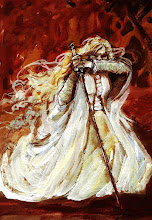WEEK TWO ESSAY:
1. Explain St. Paul's understanding of human freedom as evidenced in the following passages of Scripture:
* Romans 6: 11-23; 7: 2-12; 8:1-5
* Galatians 4:21-31
Your response should include an explanation of how these verses relate to CCC 1744-45.
2. Determine the object, the end, and the circumstances of the widow's actions in Luke 21:1-4 and Judas' actions in John 13:1-30. Then, compare and contrast your findings.
3. The word conscience appears 30 times in the New Testament. Please explain the meaning St. Paul intends when he speaks of conscience in three or four of the following passages:
* Rom 2:15; 13:5
* 1 Cor 8:12; 10:27-29
* 2 Cor 1:12; 5:11
* 1 Tm 1:19
* Heb 10:22
Your response should include an explanation of how these verses relate to CCC 1786-1789.
GUIDELINES for ESSAYS:
